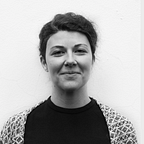Why being a mentor will make you very very happy (the brief scientific/biological take)
For it is in giving that we receive — Saint Francis of Assisi
The sole meaning of life is to serve humanity — Leo Tolstoy
We make a living by what we get; we make a life by what we give — Winston Churchill
Giving back is as good for you as it is for those you are helping, because giving gives you purpose. When you have a purpose-driven life, you’re a happier person — Goldie Hawn
Scientific research from the past century proves what anecdotal evidence already hints at, that ‘giving’ is a very powerful tool to long lasting happiness and continuous growth.
Through MRI technology, we now know that ‘giving’ activates the same parts of the brain that are stimulated by food and intimate physical connection. Experiments show evidence that altruism is hardwired in the brain, and it’s pleasurable.
Dopamine, serotonin, oxytocin and endorphins (old info from high school and Simon Sinek new book ‘ Leaders eat last’ refreshed my memory — check it out!) more specifically are the quartet responsible for our happiness. Many events can trigger these chemicals, specifically Serotonin and Oxytocin are connected with social interaction and feeling of trust and safety with another human being. Serotonin flows when you feel significant or important for someone else. Is generated with public recognition, when people thank you or appreciate you openly and connects strongly with pride. We, in turn, feel grateful to people who believe in us and display it openly, and therefore reinforces bond between people. Loneliness and depression appear when serotonin is absent. Oxytocin creates intimacy, trust, and builds healthy relationships.
When someone receives a gift, their oxytocin levels can rise. You can strengthen work and personal relationships through a simple physical or symbolical gift.
Roots of why this is happening and why is it so important for us to enjoy helping others and be grateful within our group are to be found in the very core construct of us being social animals. Ultimately, a group made of diverse yet trustworthy elements will protect and provide security, food and nurture just by being loyal and staying relatively close to each other. On the contrary, being left at the edge of the group will feel weak, unsafe, uncomfortable, scary and dangerous, as one will be an easy target for predators.
With the above examples we can start to clearly understand why it is so important to focus on giving rather than receiving and how helping others may just be the secret to living a life that is not only happier but also healthier, more productive, and meaningful.
But it’s important to remember that giving doesn’t always feel great. The opposite could very well be true: giving can make us feel depleted and taken advantage of, if not framed with the right precondition and if not accompanied by a solid self awareness.
Here are some tips to that will help you give and also understand what is the best way to take most advantage out of this selfless act:
Be “otherish”
This term, (defined by Adam Grant, author of Give & Take) defines the altruistic drive to do good and be willing to give more than you receive, whilst keeping strong focus on personal interest in sight. This can translate into mentorship by simply coaching people based on something which you are experienced at and a subject which makes you feel good discussing about. Our passion should be at the origin of our giving, making it even more pleasurable to support without anything in return.
Donate your minutes, not your euros
By all means i m not saying you shouldn't donate to charity, what i m challenging is the sense of happiness and actual contribution to any meaningful cause which will derive out of this act. Giving money only contributes to a short-term feeling of relieve and, if you are in it for a long-lasting sense of do-good happiness, this just wont cut it. There is simply not enough involvement nor long term dedication; the whole process takes a few seconds and just helps shushing your inner voice telling you to restore your conscience by donating a dollar or two. Donating your time can be far more impactful to both you and the receiver, and, whilst not all have money, we all have time to spare!
Don’t give to get
Whilst we could make the mistake of expecting something in return for giving away our precious skills or time or support, if you carefully read above, you will know that the reward you are searching for is hidden in the very act of helping others.
Here at The Product Lab we take pride in shaping a strong product community based on human interactions — check out our second cycle of applications for Product Mentorship program coming up!
